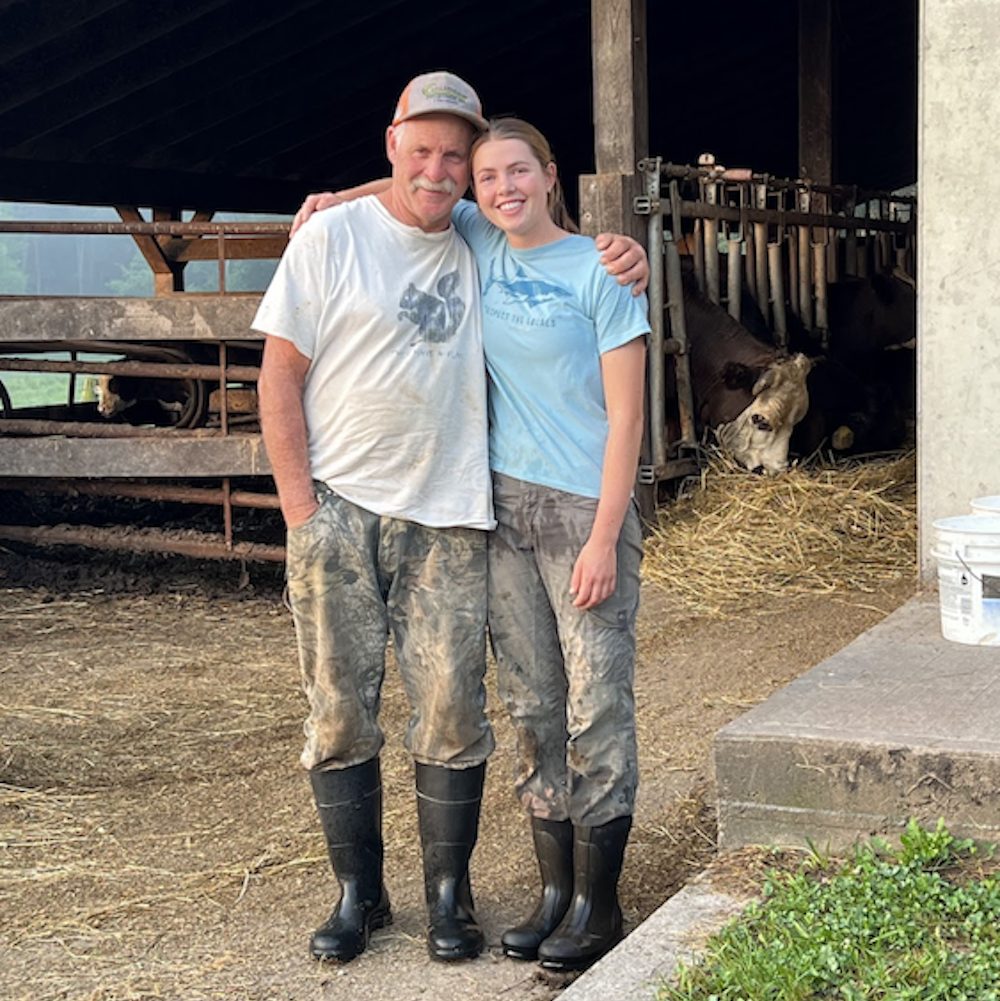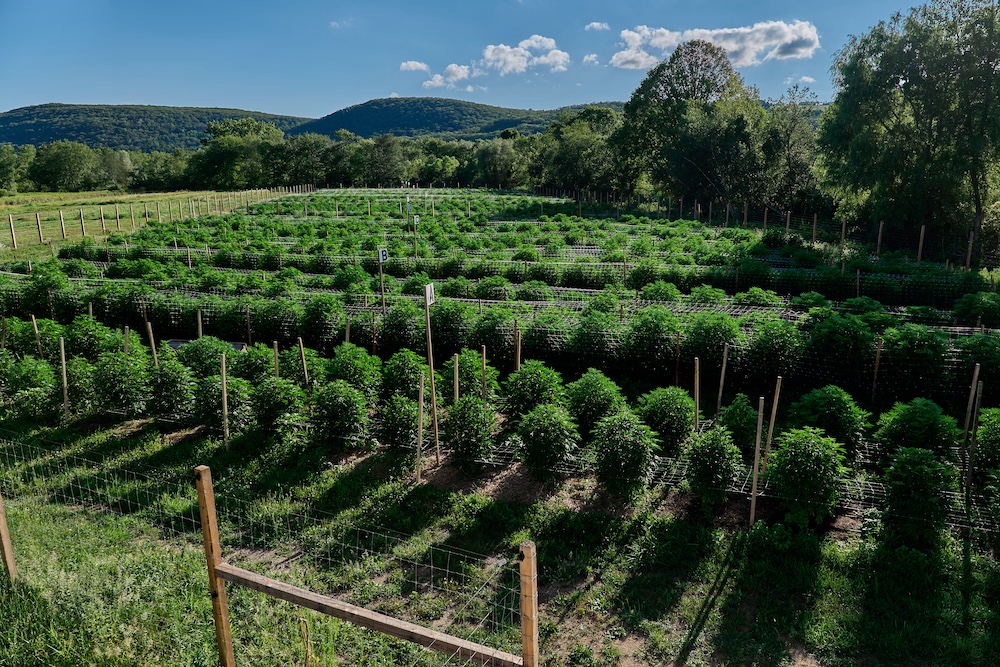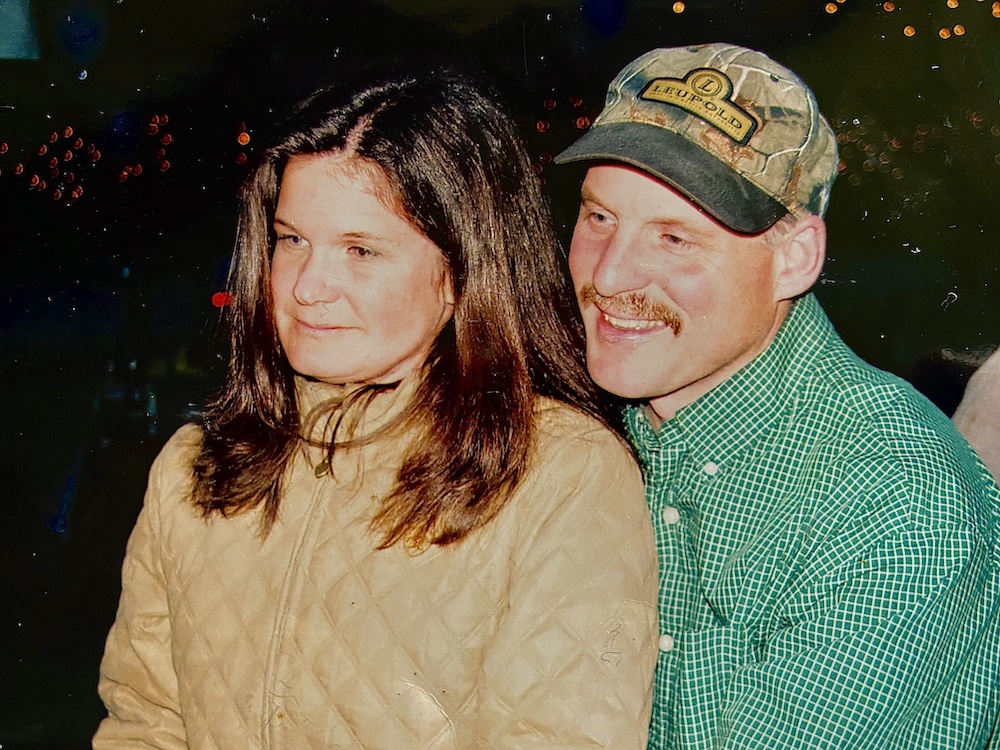
Honoring Juneteenth: Important Resources for Black Farmers
by Jenny Wonderling
In honor of Juneteenth, the annual federal holiday celebrating the end of slavery in the United States, we commemorate this day by sharing helpful and important allies for Black (and BIPOC) farmers in the Hudson Valley and beyond. These include resources for funding, greater access to regenerative farming skills, and native ecosystem restoration, all in support of the Black community reclaiming farming and earth-based wisdom.

Photos courtesy of Black Farmers United NYS
But first… Why is it Important That the Black Community Reclaims Farming Traditions?
According to the United States Department of Agriculture (USDA,)“Today, just 1% of farmers in the United States identify as Black. These numbers are down from 1 million Black farmers a century ago.” Meanwhile, the same census data reveals that over 95 percent are caucasian. By honoring and supporting black farmers we are hoping to help reclaim and proliferate earth-based wisdom, resilience, and sovereignty, not to mention share access to fresh and healthy food.”
Scenic Hudson added more perspective to the abysmal inequity of those numbers as well as some hope.
“In 1919, Black farmland ownership peaked at 16 to 19 million acres, which was about 14% of total agricultural land. A century later, 90% of that land has been lost. Even though farmers of color now account for only 2% of the agricultural land, Black farmers are drawing strength from their long history of agricultural production as a strategy to address food insecurity and improve the health of local communities.”
Another 2017 USDA report also carries some optimism, stating that the numbers of Black farmers are indeed rising and Essence magazine wrote, “A new generation of Black agricultural producers are working to close this racial gap—both within the farming world and beyond.”

Photo courtesy Gullybean Farm
A too-long history of blatant discrimination has stood in the way of access to loans, grants, equipment, and land ownership for black farmers who have wanted the same opportunities as independent white farmers and entrepreneurs. Meanwhile, according to Hunger and Health, “In 2020, 20% of Black individuals experienced food insecurity, which was more than three times the rate of white households. The Black community consistently faces high rates of hunger due to social, economic, and environmental challenges. To address the high rates of food insecurity amongst Black people, many people in the Black community are returning to their agricultural roots to ensure their neighbors have access to nutrient-rich foods.”

Photos courtesy of Northeast Farmers of Color Land Trust
Thankfully, the following organizations offer advocacy, access to affordable land, education, grant opportunities and more to make that journey feel more supported.
Northeast Farmers of Color Land Trust “We act for a future of food and land sovereignty in the Northeast region, through permanent and secure land tenure for Indigenous, Black, Latinx, and Asian farmers who will relate with the land in a sacred manner that honors our ancestors’ dreams – for regenerative farming, sustainable human habitat, ceremony, native ecosystem restoration, climate healing, and cultural preservation. The core of NEFOC is our Network, an informal alliance of 600 Black, Latinx, Indigenous, and Asian farmers and land stewards of color making our lives on land in New England and Upstate New York. Click HERE to find out more.

Photos courtesy of WILDSEED Community Farm & Healing Village
Black Farmers United NYS: “We are farmers, educators, and food justice advocates [aiming to] unify, amplify, and create pathways to ownership for NYS Black farmers through education, policy development, networking, and mutual aid. Black Farmers United NYS is a group of over 100 Black farmers, educators, and food justice advocates from across the state. Without serious investment and intervention, Black farmers in New York State will be marginalized out of existence. Our proposal aims to protect the legacy and ensure the future of Black farmers. They hold the power to radically change how black communities control access to safe, healthy food, and build a collective wealth and health in New York State.” Click HERE to find out more.
Institute of AfroFuturist Technology: Their site asks visitors, “Are you interested in starting your own farm business in New York State? The Institute of Afrofuturist Ecology Regenerative Agriculture Initiative is designed for aspiring or beginning growers of African heritage to gain basic skills in regenerative farming, take steps toward food sovereignty and gain access to economic opportunities within the emerging hemp industry.” They provide resources and information, quoting NYS Senator Michelle Hinchey to drive home the opportunities that farming and specifically farming of hemp can provide in NY State: “In December of 2022, Governor Hochul signed a bill to expand market opportunities for industrial hemp that would increase its uses in manufacturing and construction materials, including packaging, textiles and hempcrete. “Hemp is the material of the future, and positioning New York as a leading producer of the world’s industrial hemp supply is a winning strategy for fighting the Climate Crisis, bringing large-scale economic development to New York’s rural communities, and unlocking new revenue sources to put our farmers in a better financial position.” Reach out for more information HERE
National Black Farmers Association: “Our mission is to encourage the participation of small and underserved farmers in gaining access to resources of state and federal programs administered by the United States Department of Agriculture, while communicating and educating our community through effective outreach and technical assistance. The National Black Farmers Association (NBFA) is a non-profit organization representing African American farmers and their families in the United States. As an association, it serves tens of thousands of members nationwide. NBFA’s education and advocacy efforts have been focused on civil rights, land retention, access to public and private loans, education and agricultural training, and rural economic development for Black and other small farmers.” Click HERE to find out more.
American Farmland Trust: AFT has been hard at work behind the scenes to make sure that the next Farm Bill protects farmland, increases farm viability, helps farmers build resilience and combat climate change, and more. “Today, because of AFT, millions of acres of farmland that otherwise would have been converted into house lots and shopping malls remain in farming, and tens of thousands of farmers and ranchers have adopted better farming practices.” Click HERE to learn more.
The Rondout Valley Growers Association: A farmer-led nonprofit organization, deeply rooted both in Hudson Valley farming and in community, RVGA is dedicated to inspire and engage the next generation of farmers in order to create a sustainable local food supply and strong agricultural fabric. They nurture and nourish youth and underserved populations, cultivate knowledge, values and skills, as well as promote careers, jobs and community service, while always driving home the importance of local agriculture and access for the health of families and community. Click HERE to learn more.
Black Farmer Fund. Formed in 2018 “to seek reparations for Black farmers. It’s a charitable loan fund that pools money from investors to provide non-extractive loans to Black-owned farming and food businesses,” Olive Watkins told Civileats.com. Olive is a full-time MBA candidate and a director on the founding board of the Black Farmer Fund. “The Black Farmer Fund is a tool to make reparations happen, a vehicle to aggregate money so it gets invested in our farmers and builds community wealth. I realized that we need to develop financial literacy and finance vehicles in our movements in order to gain access to the capital we need to thrive on the land.” Click HERE to find out more.
Scenic Hudson’s Commitment to Help: “Scenic Hudson also is taking steps to address inequities faced by farmers who are Black, Indigenous, or People of Color (BIPOC). Community gardens we are creating in Newburgh and Poughkeepsie are connecting BIPOC and other growers with land. We’re strengthening our commitment to keep farmland affordable — the greatest stumbling block to BIPOC farmers — by including terms in transactions ensuring the land can remain affordable to working farmers. Right now, we’re exploring new opportunities to support groups focused on increasing farm ownership for Black farmers.” Click HERE to learn more.
Two honorees of Scenic Hudson’s “People Who Make a Difference” campaign, Leah Penniman and Karen Washington “are leading efforts to turn [the] tide, attributable in part to a wide range of discriminatory policies. So is the Biden administration, which has proposed a novel dual approach — facilitating access to land for Black farmers who adopt regenerative agricultural practices [is] a win-win for equality and the climate.”

We will leave you with this quote by A-dae Romero Briones, Director of the Native Agriculture and Food Systems program at the First Nations Development Institute:
“I know we, as an organization and as a nation, have a long way to go. Until we stop ignoring the traditions and experiences of BIPOC farmers, we’ll continue denying a vital aspect of our heritage, sustain disenfranchisement that’s gone on too long, and fail to connect with people from whom we have so much to learn. By empowering and shifting leadership to BIPOC farmers, we’ll not only fulfill our expressed commitment to contribute to a more just, equitable, inclusive Hudson Valley, but we’ll also increase the likelihood that agriculture can help put us ahead of the curve in overcoming this crisis.”
+ + +
Featured Photo at the top is from Soul Fire Farm in Petersburgh NY
And don’t forget to read our blog, Black Owned Hudson Valley Farms Making Positive Change.
Peace, good health, fertile land, and abundance to all…
Write a Comment
You must be logged in to post a comment.





